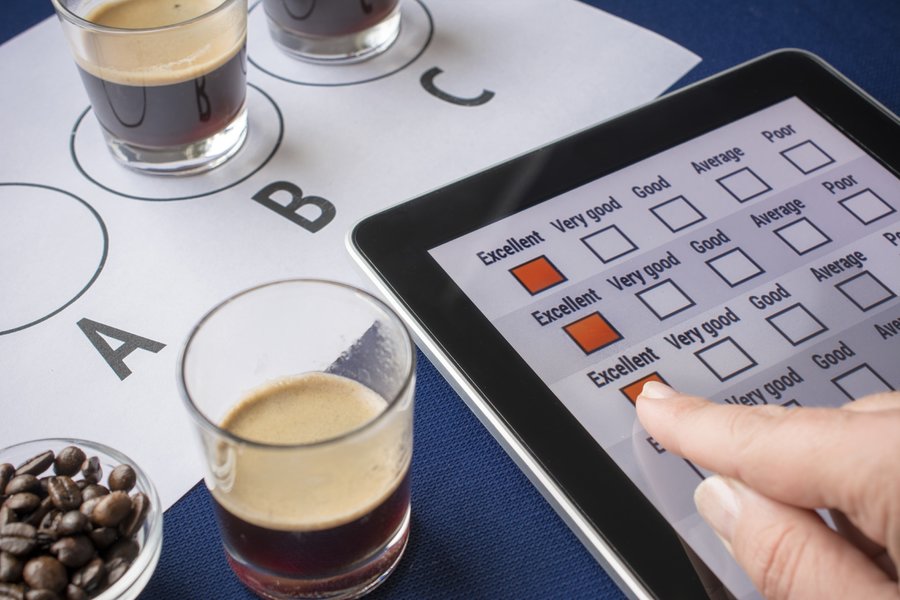ISO 61648 Hedonic Testing in Bakery Products
The ISO 61648 standard provides a robust framework for conducting hedonic testing, which is essential for understanding consumer preferences and behaviors towards bakery products. This form of sensory evaluation evaluates the intrinsic attributes of food items through the application of descriptive analysis. By assessing the hedonic value—such as taste, smell, texture, and appearance—a laboratory adhering to ISO 61648 can provide valuable insights into the acceptability and market potential of new or existing bakery products.
The primary objective of this testing is to quantify the sensory attributes that influence consumer satisfaction. The test begins with a comprehensive description of each product sample, followed by the evaluation process where panelists rate various sensory descriptors based on their personal preferences. This allows for an accurate assessment of how different characteristics contribute to overall hedonic value.
The standard also emphasizes the importance of proper specimen preparation and storage conditions to ensure consistency across tests. Specimens must be prepared according to specific protocols, ensuring they are representative of the product being evaluated. Environmental factors such as temperature, humidity, and lighting can significantly affect the results; therefore, controlled environments are necessary.
The equipment used in this process includes specialized sensory evaluation booths designed to minimize external distractions while allowing panelists to focus on the attributes being tested. Instruments like digital scales or micrometers may be employed for precise measurements if required. Additionally, descriptive analysis software can assist in organizing and interpreting data collected during the test.
Once all panels have completed their evaluations, statistical methods are applied to analyze the gathered information. These analyses help determine which sensory attributes significantly impact consumer satisfaction levels. The results provide actionable insights that companies can use when developing new products or improving existing ones.
Understanding these preferences is crucial for maintaining high-quality standards and meeting customer expectations in the competitive food industry. Through careful adherence to ISO 61648 guidelines, laboratories contribute valuable knowledge towards optimizing product development processes, enhancing brand reputation, and ultimately increasing market share.
Why It Matters
Consumer preferences play a pivotal role in determining the success of any bakery product. By leveraging ISO 61648 hedonic testing, companies gain deep insights into what aspects of their products are most appealing to consumers. This knowledge enables them to make informed decisions about ingredient selection, formulation adjustments, and packaging designs.
One key advantage is the ability to identify critical factors that contribute positively or negatively to consumer satisfaction. For instance, if a particular texture or flavor combination consistently receives high ratings, this information can guide future innovations within the product line. Conversely, low-rated attributes could indicate areas where improvements are needed, allowing manufacturers to address these issues proactively.
Another significant benefit lies in enhancing communication between R&D teams and marketing departments. When both groups understand consumer preferences based on scientific evidence rather than assumptions alone, they can collaborate more effectively towards achieving common goals. This collaborative approach fosters a culture of continuous improvement throughout the organization.
Achieving compliance with international standards like ISO 61648 also enhances credibility among stakeholders including suppliers, customers, and regulatory bodies. It demonstrates commitment to quality assurance practices that align with global best practices in food safety and consumer protection.
Scope and Methodology
| Aspect | Description |
|---|---|
| Sample Preparation | Samples should be prepared in a manner consistent with the product’s intended use. They must undergo appropriate conditioning (e.g., temperature, humidity) before testing. |
| Panel Composition | A panel of trained evaluators is assembled to assess sensory attributes. Panels typically consist of 15-20 individuals representing diverse demographics relevant to the target market. |
| Sensory Attributes | The attributes evaluated include taste, aroma, texture, appearance, and overall liking. |
| Data Collection | Panelists rate each attribute on a predefined scale. Statistical analysis is performed to identify significant contributors to overall hedonic value. |
| Environmental Conditions | The sensory evaluation room must maintain consistent temperature, humidity levels, and lighting conditions throughout the testing period. |
The ISO 61648 standard ensures that all steps in the hedonic testing process are standardized to produce reliable results. This includes defining clear objectives for each test, selecting appropriate panels, ensuring proper sample preparation, maintaining controlled environments during evaluation, and applying robust statistical techniques to interpret findings.
Customer Impact and Satisfaction
The application of ISO 61648 hedonic testing extends beyond mere product development; it directly impacts customer satisfaction and loyalty. When companies implement these tests early in the design phase, they can anticipate potential issues before full-scale production begins. Early identification of problematic areas allows for timely corrections, reducing costly rework later on.
Furthermore, aligning with international standards such as ISO 61648 enhances a company’s reputation within its industry. Consumers increasingly value transparency and reliability when purchasing food products. By demonstrating adherence to recognized global best practices, businesses signal their dedication to quality assurance and consumer safety.
In addition to internal applications, ISO 61648 can serve as an essential tool during regulatory compliance processes. Many jurisdictions require manufacturers to prove that their products meet certain thresholds regarding sensory attributes. Demonstrating compliance with this standard provides a strong argument for meeting such requirements successfully.





